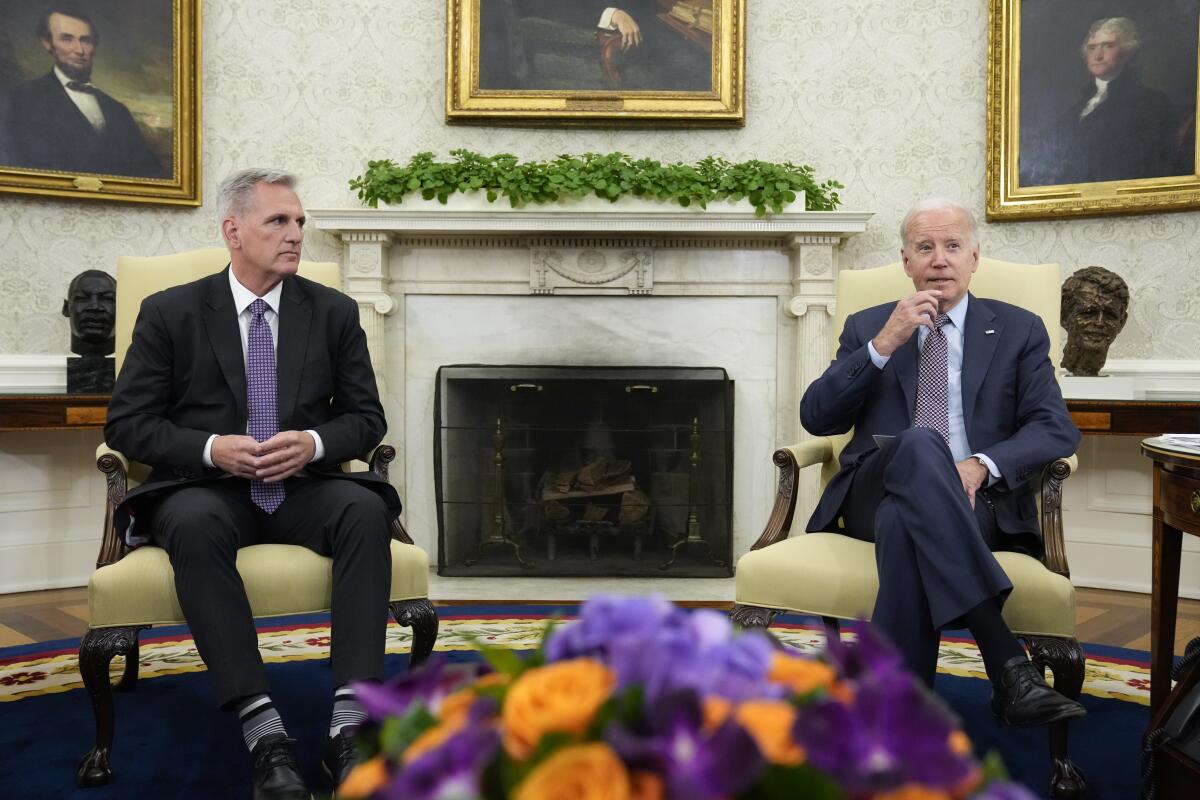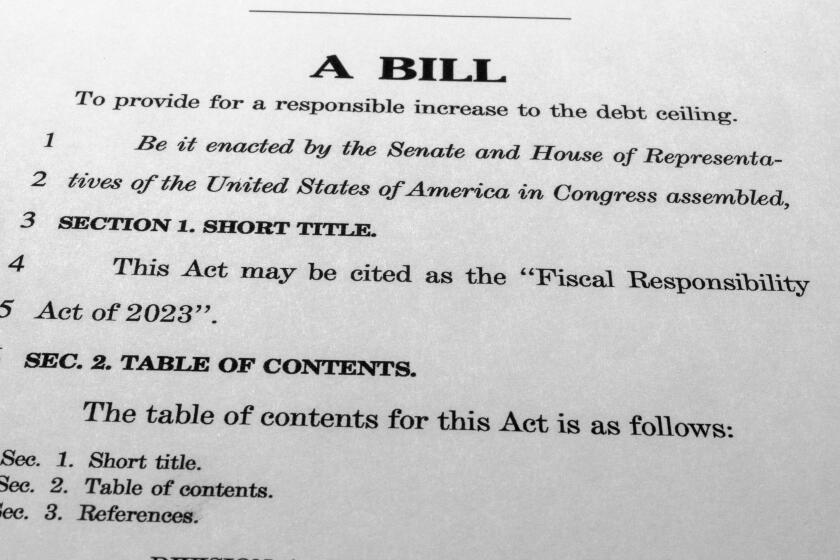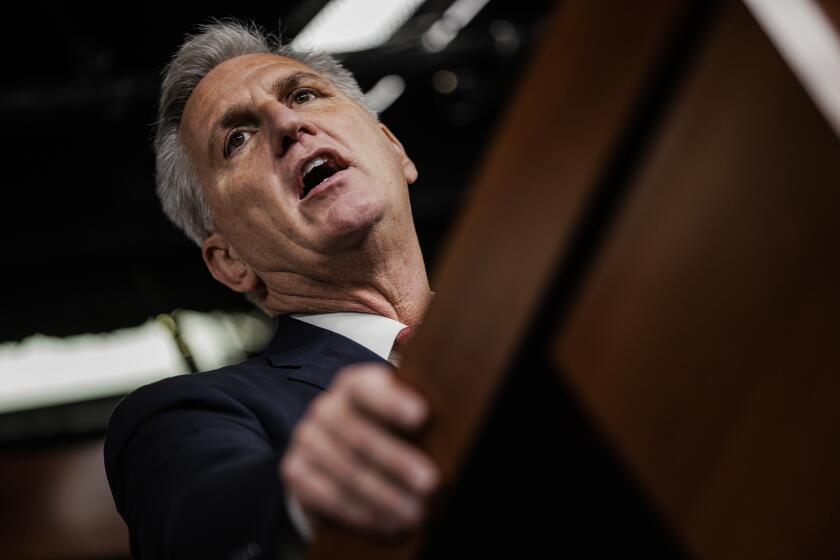Thanks to Speaker McCarthy for not throwing the U.S. off the financial cliff

Considering the awful alternative — default on the nation’s debts and the possibility of a recession — the White House and House Speaker Kevin McCarthy deserve credit for cobbling together a compromise to suspend the nation’s debt ceiling. But the agreement, approved by the House on Wednesday and by the Senate late Thursday, shouldn’t have been necessary, and its curbs on federal spending are relatively inconsequential and anticlimactic.
The agreement links two objectives that should have remained separate: satisfying financial obligations already incurred and dealing with future federal spending. President Biden had rightly called for a “clean” bill to allow the government to exceed the $31.4-trillion debt ceiling, but eventually he had to negotiate with McCarthy on an agreement that also targeted spending.
The debt-ceiling fight in the GOP House ended in rare bipartisanship, with wins and losses on both sides. But the president won measurably more.
Ideally McCarthy should have put principle above politics and sought to achieve Republican fiscal goals through the ordinary budget and appropriations process. But the speaker presides over a fractious caucus that elected him on the 15th ballot, and he arguably had little choice but to use the possibility of default to press for concessions on spending, even if they ended up as trivial and mostly symbolic. Even so, 71 House Republicans, most from the extreme right wing of the party, voted against the legislation. (Fortunately, it received 165 Democratic votes.)
Seldom has such a massive mountain labored to bring forth such a minuscule mouse. Put aside the fact that leaders of both parties were unwilling to address possible changes in Social Security and Medicare as part of debt ceiling talks. Even within the framework of so-called “discretionary” spending, the limits on spending McCarthy extracted were underwhelming.
Reading the Constitution aloud, reciting the Pledge of Allegiance over and over, denouncing socialism — these are empty, demoralizing displays of patriotism by House Republicans.
The speaker and his negotiators also succeeded in securing work requirements for more middle-aged adults receiving food assistance and reallocation of $20 billion intended for the Internal Revenue Service. (Republicans have propagated the myth that additional funding for the IRS will be spent on an army of agents who would terrorize hard-working Americans.)
McCarthy has described passage of the deal as “fabulous” and gloated that Democrats are now on record as supporting work requirements for welfare, “slashing IRS funding” and cutting spending. But the fact that the concessions he extracted are so modest actually speaks well of the Bakersfield Republican. If he deserves criticism for linking the debt ceiling and spending issues — and he does — he also deserves some credit for accepting a compromise with the White House that some hard-line Republicans couldn’t stomach.
Biden also behaved responsibly in deftly engaging McCarthy while refusing to agree to cuts that would be even more harmful to vulnerable Americans and undermine his own priorities such as fighting climate change. But any praise for Congress and McCarthy can’t disguise the fact that the nation’s economy was put through a needless and nerve-racking period of suspense about whether it would pay its bills.
More to Read
A cure for the common opinion
Get thought-provoking perspectives with our weekly newsletter.
You may occasionally receive promotional content from the Los Angeles Times.












